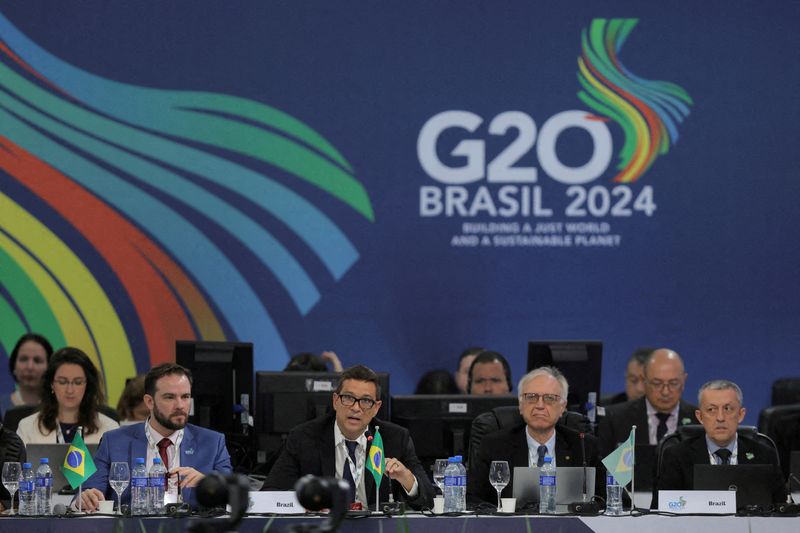Brazil’s “billionaire tax” idea well received at G20, but seen as difficult to implement
2024.07.25 14:51
By Jan Strupczewski and Marcela Ayres
RIO DE JANEIRO (Reuters) – Brazil’s idea to tax the world’s super-rich to reduce inequality was well received at a meeting of G20 finance ministers this week, but will be very challenging to implement, top European and U.S. officials said on Thursday.
With its presidency of the Group of 20 major economies this year, Brazil has spurred discussion of a proposal to levy a 2% wealth tax on fortunes over $1 billion, raising estimated revenue of up to $250 billion annually from 3,000 individuals.
The talks are expected to yield a joint statement on Thursday in support of progressive taxation that will stop short of endorsing the proposal for a global “billionaire tax.”
European Economic Commissioner Paolo Gentiloni cautioned that while the idea of progressive taxation was a “good contribution” from Brazil, proceeding with such a proposal would be a very difficult task.
“We all know that we are starting a process which is very, very challenging,” Gentiloni said. “The first step will be to work on exchange of information among different countries.”
“It’s challenging, but my impression is that overall it was well received,” he said. “It will be something to discuss in the coming months and years.”
U.S. Treasury Secretary Janet Yellen also applauded the spirit of discussions, but was wary of a new global tax policy.
“The United States is strongly supportive of progressive taxation and making sure that very wealthy high-income individuals pay their fair share,” she told reporters at the G20 finance meeting in Rio de Janeiro.
She noted U.S. President Joe Biden had proposed several policies to that end, including a “billionaires tax.”

“We think … it makes sense for most countries to take this approach of progressive taxation. And we are happy to work with Brazil on that and propagate these ideas in the G20,” she said.
“But tax policy is very difficult to coordinate globally and we don’t see a need or really think it is desirable to try to negotiate a global agreement on that. We think that all countries should make sure that their taxation systems are fair and progressive,” she said.








